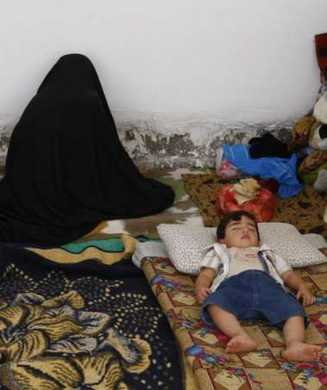A statement today from top leaders of the American hierarchy seems to say that neither side has the best–or most Catholic–approach to abortion. Or that’s how it reads to me.
“Both opposing evil and doing good are essential obligations,” write Cardinal Justin Rigali of Philadelphia, chairman of the Committee on Pro-Life Activities, and Bishop William F. Murphy of Rockville Centre, N.Y., chairman of the Committee on Domestic Justice and Human Development. They are quoting “Faithful Citizenship,” the bishops’ election guide–and the only one, they stress again, that is authorized, a clear swipe at conservative groups who are distributing their own “voter guides” in an effort to bolster McCain. The bishops continue:
“Unfortunately, there seem to be efforts and voter education materials designed to persuade Catholics that they need only choose one approach: either opposing evil or doing good. This is not an authentically Catholic approach.
Some argue that we should not focus on policies that provide help for pregnant women, but just focus on the essential task of establishing legal protections for children in the womb. Others argue that providing lifeaffirming support for pregnant women should be our only focus and this should take the place of efforts to establish legal protections for unborn children. We want to be clear that neither argument is consistent with Catholic teaching. Our faith requires us to oppose abortion on demand and to provide help to mothers facing challenging pregnancies.”
(Read the CNS story here…)
This seems clearly aimed at those Catholics (like, most recently and forthrightly, Nicholas Cafardi) who say the legal battle is largely over, and we must focus on social policy. The bishops don’t want to raise the white flag, and in fact folks like Cafardi et al don’t want to either. They are being realists. (Read “A Catholic Brief for Obama” in the latest Newsweek.)
But I also think they were trying to calm the waters following a host of episodes, such as the latest remarks by Archbishop Chaput of Denver, this “Judgment Day” column by St. Louis auxiliary, Bishop Robert J. Hermann, and, most publicly, Scranton Bishop Martino’s party-crashing intervention at a parish seminar on the election.
The bishops are all over the map in this campaign, and some predict “blood on the floor” when they meet to hash out their views on electioneering after Election Day. The Rigali-Murphy brief may be an effort to find some common ground, or simply calm in these final weeks.
To that end, check out Father Tom Reese’s latest at the Washington Post’s “On Faith” blog, “Something New in the Abortion Debate.” It’s a typically insightful take on both politics and the church, and has an onblique challenge to siome of the more outspoken prelates:
“One wonders why these maverick bishops don’t just endorse their favorite candidates like some Protestant ministers (e.g., Rev. Jesse Jackson and Rev. Pat Robertson) do. It would not be a violation of the constitution or tax laws for them to endorse a candidate, as long as they did it as private citizens and did not use church facilities or funds.” Perhaps they are afraid to break ranks so completely from the other bishops and from their own people, who don’t like their clergy endorsing candidates.”
I’d also point to the closing graf of today’s statement, which again stresses the primacy of “Faithful Citizenship” while also pointing to documents from bishops. And it also knocks guides from outside groups that are being distributed, largely by conservative groups:
“In light of a wide range of attempts to interpret Church teaching or imply that outside materials represent the teaching of the Church, we wish to affirm that Forming Consciences for Faithful Citizenship is the teaching that has been approved by the body of bishops of the United States. As we explained in that statement, ‘We encourage Catholics to seek those resources that are authorized by their own bishops, their state Catholic conferences, and the United States Conference of Catholic Bishops.’ “
So were does that leave the Catholic voter? With the duty to inform their conscience, and inform themselves about policy, and refrain from anathematizing those who may make a different decision.

